QuestionQUESTION: I just bought a 14 yr old gelding that is being boarded at my friends 7 acre farm with 2 mares and a very aggressive gelding that will not let him in the herd or even eat at the feeder during meal times. We slowly intorduced each horse separately and just now put them all together but my horse is docile and the other gelding shoves him away every chance he can get. How do we correct this problem. do we put a ruber muzzle on the mean one to prevent bitting which has happened a lot! Do we get a shock collar? It has been a month now and to no avail, my horse is still left out of the herd!
ANSWER: Hi Joni, herd behavior can be tough to watch sometime. The aggressive gelding is being a horse and protecting his herd and mares. There are other factors that may be at play. How old is the other gelding, how long has he been with mares, was he cut late, and other things. A muzzle will not help and it may make the aggressive gelding get more physical. I am assuming that your horse is running from the senior male and not challenging him. You say this has been going on for a month.. that appears odd. I could see this lasting this long if you were pulling him out and keeping him in a stall at night and then letting them out during the day. That would prolong the pecking order disputes.
Not sure how much control you have or what your options are but here are a few ideas. Put the two geldings together without the mares, this would remove the drive to have the mares and both gelding would soon be buddies. Another option is move the aggressive gelding out for a few days and let your horse bond with the mares, that may calm it down some. If you are not leaving them all together all the time, I would suggest that. If you are doing that, then make sure and feed them differently. Never put all the food in one spot, this always creates hard feelings and will cause disputes. When feeding horses in a herd, always put many different small piles of food far apart. (Far enough that one horse can not kick another horse at a different pile) This does a lot of things. This always leaves food for the low horse that gets pushed off and he can just go to another pile. It also makes horses move around while eating, since they will want to check out each pile, which is good for them. It will also allow horses to buddy up and eat with their special friend and the other horses have other options. The disputes will be less since the horse has a place to go and eat and does not have to fight to eat. By feeding in one pile or one location, all of these benefits are lost and the fights get more intense as the hungry horse get more hungry.
If both geldings tie good ( will stand without pulling when tied to a secure point), then I would tie them both, with a short rope, next to each other, just enough to hold their head naturally, and let them spend some stand time together. They will not have food or mares to fight over and this will equal the playing field so they can get to know each other. Don't leave them alone at first in case they get into a kicking match. If they get aggressive when you tie them together, stand by with a plastic bag on a stick. Stand behind them and if they try and kick each other or fight, wave the bag, this will distract them and they will be more worried about you and the bag and not each other.
I hope this helps, if I did not make this too clear, feel free to shoot me another email so I can clear it up.
Rick
---------- FOLLOW-UP ----------
QUESTION: My horse Chico is with the the oldest 22 yr mare Jada now and Banshee 9yr gelding and jada's daughter Tango 11 are in a separate area but a fence in between so they can still smell each other. we did the one on one with all 3 for 1 week at a time banshee still would not let him come by the feeder or water when they were together and they had some kicking matches and so chico will not challenge him. we never put them in stalls at night they just were in the pasture together. I know it has been too long so that is why I am frustrated with what to do now? I go out there almost everyday to attend to him and see his new wounds, mostly bitting on his sides. She has not feed them in piles just one big hay feeder so I will try that and see how that works. Should we take banshee out and put him with the mares for a few days? wheh chico was with them individually he establish pecking order over them but then when they were all together, banshee and tango charges him to a full run around the fence lines..chico still keeps inching his way into the herd but is left out. a month is too long that is why i am left with a loss of ideas on what to do! I do not want to see him get hurt anymore! I believe banshee was gelded maybe late and used as a stud but not sure on his history? I also believe he was somewhat abused by his prior owner and not feed properly, his line on his teeth go all the way down and to some that can mean a malnutrition problem and not the true age of the horse. Thanks for your help and if there are any other suggestions, I am open to try anything at this point!
AnswerOk it sounds like you have done some good things. I really think the feeding in different piles will help and after a while you can go back to one feeder. The reason both males do good with just the mares are normal, no competition. It sounds like most aggression happens during feeding or over food. The water thing is also normal, that is the reason for pecking order, the higher you are means you eat and drink first, that is the benefit to being higher in the order. This ensure only the strongest and best leader is in charge and preserves the herd safety.
I am sure you don't what to hear this, but I would put them all together and let it work out. Once you take away the one feeding spot you should really see an improvement. The further you put the piles of feed apart, the better, the leader will not want to go too far just to chase off another horse and he will tire fast and just eat. This will reinforce good eating manners and will not put the aggressive drive into play. When you feed in many piles you will see the distinct pecking order. #1 will eat first, #2 will eat at the second pile, and so on. At first they will all want to try each pile to make sure one is not better, but after a few feedings, you will see things calm down considerably.
A few bites will not kill him and if they are past their kicking it is already starting to calm down, soon the bites will be less, it will only be ear pinning and a few charges. As long as they are not too confined, the lower horse can always move and get away, so if he is still getting bites, it tells me he is not totally yielding and may be just testing the waters and trying to move up.
You can just hope no one gets hurt bad and it will get better. My 3 yr old has new marks and cuts everyday. He is in pasture with about 8 other horses. He gets cuts and bites because he is always sticking his nose in other horses butt. He is playful and is always picking and wanting to play, so the old guys let him know when enough is enough. I just put a little med on his cut and scrapes and move on. Horses will be horses the old saying "No horse play" is around for a reason, they love to do it and usually they get a few cuts along the way. Some of his bites may even be from the mares teaching him some manners. Believe me if a horse does not want to get bit, it will not get bit, they can move when they want to. If all the bites were on his butt, then I would say he is being chased down and bit on the run, but if they are on other parts of the body, then he is playing a part in it. And even if they are all on his butt, he is not paying attention and getting too close the leader. When he gets tired of getting bit he will start staying on the outside of the herd and then the aggressive male will know he is showing respect and will slowly let him in closer.
Good luck and keep playing nurse. There is another old saying the horse world, "There are two kinds of horses, those that are hurt and those that will be hurt". :)
Take care,
Rick

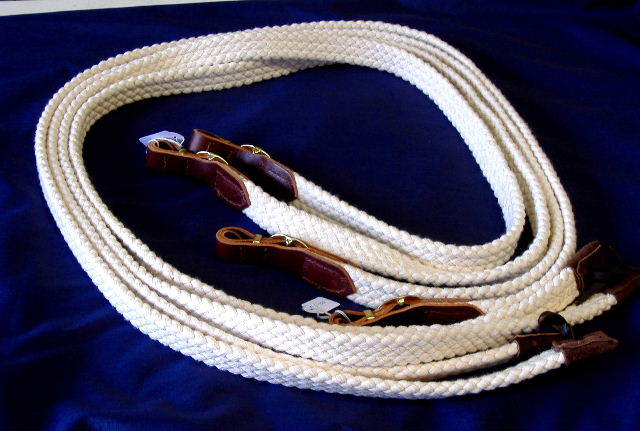 braided reins for racing
Question
braided reins
hello sir, what are the u
braided reins for racing
Question
braided reins
hello sir, what are the u
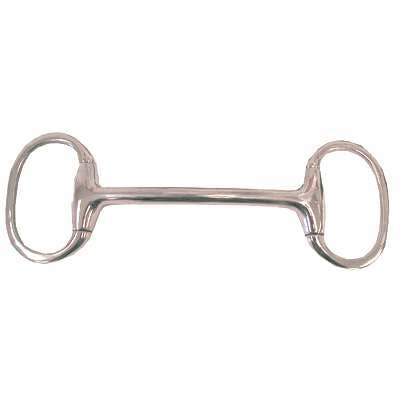 straight bar V single joint bit
Question
mullen mouth
hello maam, do straight ba
straight bar V single joint bit
Question
mullen mouth
hello maam, do straight ba
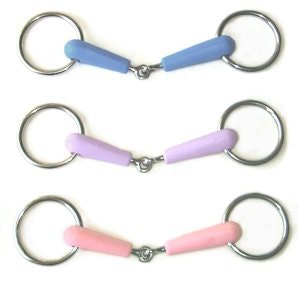 plastic bits - light in horse mouth
Question
apple mouth bits
hello maam, are plasti
plastic bits - light in horse mouth
Question
apple mouth bits
hello maam, are plasti
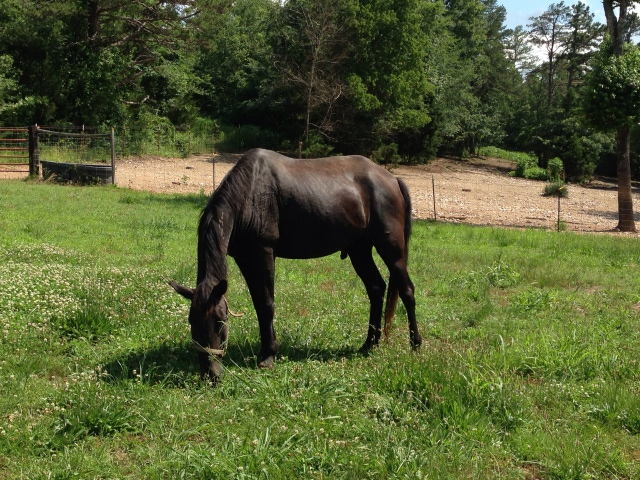 My Horse acts like a completely different horse when I let him out of his pasture/pen.
Question
My baby
I have a 20 year old fully brok
My Horse acts like a completely different horse when I let him out of his pasture/pen.
Question
My baby
I have a 20 year old fully brok
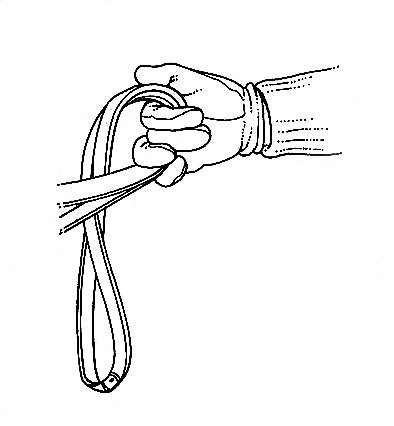 holding reins gently
Question
holding reins gently
hello, why shouldnt i hol
holding reins gently
Question
holding reins gently
hello, why shouldnt i hol